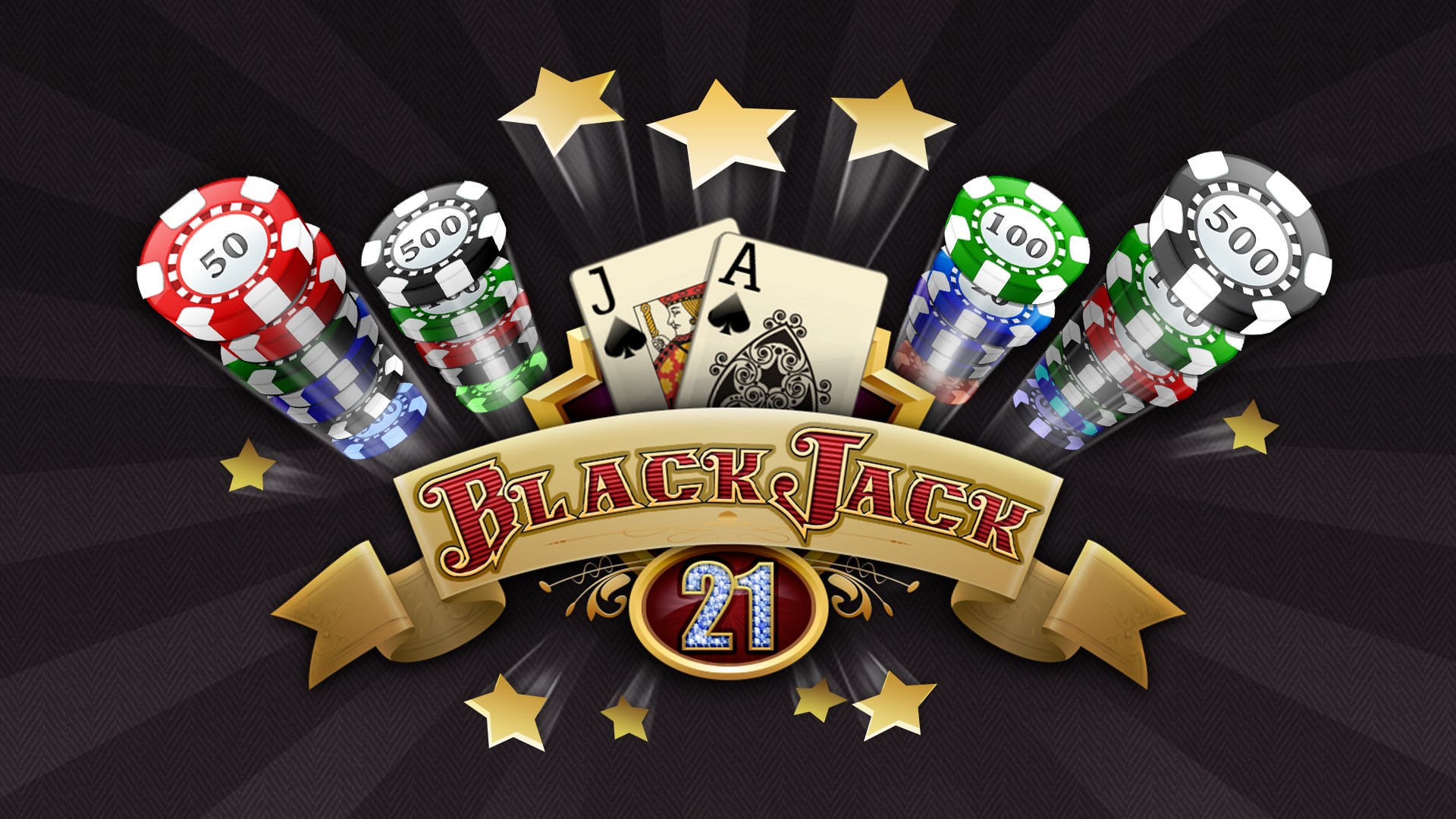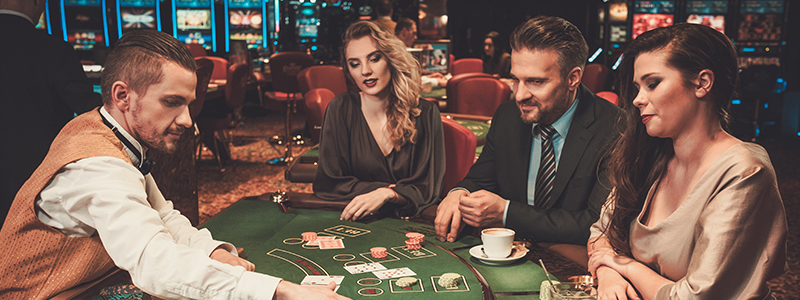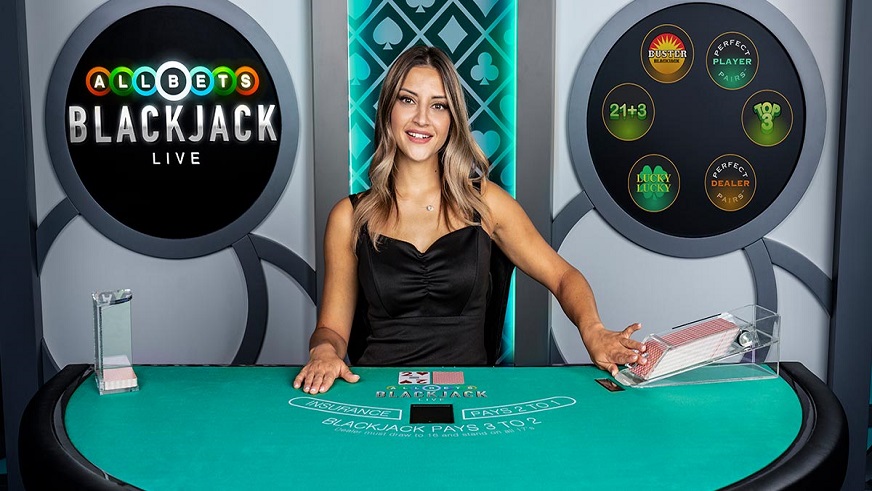Blackjack Dealer And Player 21

US Players and Credit Card, BitCoin Deposits Accepted!
The game of blackjack has rules that the players and dealers must follow. These rules are subject to changes when playing different variations of blackjack but usually they are the same. The laws of blackjack are actually quite simple. It is best to have a good grasp of the rules in order to take advantage of strategies and make the gaming experience more fun.
Blackjack Table, Dealer and Player Rules.

Traditionally, each player is dealt two cards facing up and the dealer is dealt two cards, one facing up and the other one facing down. The rule says that the dealer must have one card facing down, but there are some versions of blackjack where the dealer has both cards facing up. The values on the cards are determined by card rank in which the number on the card is face value except for the aces and royal cards. The player must also place a bet before any cards are dealt.
Blackjack 21 Objectives of the Game
How To Play Blackjack Dealer
When the dealer shows an ace, the player can choose to place a side bet of up to half the value of the original bet. If the dealer has blackjack, the bet pays 2:1. If the dealer does not have blackjack, the player loses the wager. N natural Receiving a sum of 21 in the first two cards. Blackjack is a card game in which the player’s goal is to score more points than the dealer, but not more than 21 points. Players compete just with the dealer not against each other. And the game is played with one or more decks of 52 cards. The alternative name for this game is Twenty One or 21 card game.
The rules say that you use the card rank to accumulate points. Each card dealt is equal to some amount of points and each card that you draw extra is more points added to the total. The objective of the game is to score 21 points without going over. If you go over 21, then you go bust and automatically lose the bet. Although this rule also applies to the dealer as well. The goal of blackjack is essentially get a higher score than the dealer.
Blackjack 21 player and dealer rules
Blackjack Dealer And Player 21 0
The main concept for the dealer rules is that the dealer must take a 'hit' when their point total is less than 17 and must 'stand' on points of 17 or higher. Also, when the player gets a blackjack, the dealer must pay 3:2 or $3 for every $2 bet. Some casinos have blackjack tables that pay 6:5 but these have a greater house edge, meaning you won't win as much.
Blackjack players have more features and decisions to make and the rules are more liberal. That's why it is important to know the rules so that you can play the game correctly instead of having an frustrating experience. Another important twenty one rule is that the player must finish their hand before the dealer starts his turn. In fact, the player could go bust and lose before the dealer even does anything!
Blackjack Definitions and Terms - Quick Glossary
The terms and definitions below are choices that the player can make while playing:
- Hit - This is asking the dealer to draw an extra card for the player, usually to increase a score.
- Stand - Players will stand when they are satisified with their score or feel that the dealer will go bust. When a player 'stands', then it's the dealers turn to flip his cards.
- Split - When a player is dealt a pair of cards with the same rank, he or she can decide to split the cards up and make a seperate bet. So there would be two hands and two bets going at the same time.
- Double Down - This is a move that a player makes when he or she is in a situation of high winning probability. You double the bet in the middle of play but you can only draw one card and then the player must stand.
- Surrender - Some versions of blackjack have a rule that will let the player surrender half their bet. This usually happens when the player has a stiff hand and the dealer has a good hand and the odds just say to surrender.
- Insurance - Many blackjack games have an insurance rule. This feature becomes available when the dealer has an ace showing. Then the dealer checks his face down card to see if he has a 10 point card to make a blackjack. This is highly probable with the high density of ten point cards in the deck so you can buy insurance at a cost of half the bet. If the dealer does have a blackjack, your bet is returned. If the dealer doesn't have a blackjack, then you lose the insurance.
Click image above to visit CasinoMax and play blackjack (free or real money).
Odds are everywhere you look. Seriously. Odds are in a casino, your workplace, your day-to-day live and habits, your marriage and where in the world you live.
Don’t believe me? Take a look for yourself:

- Odds of having twins (21st century) – 3 in 100 or 3%
- Odds of getting a divorce – 40 to 50%
- Odds of being stuck by lightning – 1 in 5,000 or 1 in 700,000 in any given year
- Odds of being audited by the IRS – .4% if you make less than $200,000 / year
- Odds of being dealt a blackjack – About 4.83%
Odds are just the likelihood that something will happen. As a blackjack player you deal with this all the time.

Lets look at a couple real examples to show you what I mean.
Here are the odds of you busting your hand, depending on what you were dealt:
- 21 – 100%
- 20 – 92%
- 19 – 85%
- 18 – 77%
- 17 – 69%
- 16 – 62%
- 15 – 58%
- 14 – 56%
- 13 – 39%
- 12 – 31%
- <11 – 0%
Odds of Being Dealt Specific Hands
Here are the probabilities for being dealt a specific hand:
- Blackjack – 4.8%
- Standing Hand (17-20) – 30%
- Decision Hand – (1-16) – 38.7%
- No Bust – 26.5%
Here are the odds for the final hands that the dealer will make:
- Natural 21 – 4.82%
- 21 (3+ cards) – 7.36%
- 20 – 17.58%
- 19 – 13.48%
- 18 – 13.81%
- 17 – 14.58%
- 16 – 28.36%
Blackjack Dealer And Player 21 Download
Dealer vs. Player Odds
Finally, here are the odds of the dealer busting based on their up card:
- 2 – 35.30%
- 3 – 37.56%
- 4 – 40.28%
- 5 – 42.89%
- 6 – 42.08%
- 7 – 25.99%
- 8 – 23.86%
- 9 – 23.34%
- J,Q,K – 21.43%
- A – 11.65%
Of these examples, this is the most useful. Notice what hands the dealer is most likely to bust with. The dealer will most often bust with 4, 5 or 6, followed by 2 and 3.
The odds above are static. There’s nothing you can do to change them. However, you can find ways to improve your odds so that you lose fewer hands and less money. And the less money you lose, the more you can keep to play more blackjack.
Here’s what you can do to improve your odds in blackjack:
- Use basic blackjack strategy. Without basic strategy you’re playing at an 8% disadvantage. With strategy, however, the odds increase significantly. You’ll be playing at only .5 to 1.5% disadvantage.
- Find the best games. The rules make all the difference. For example, if you play a 6:5 blackjack game you’re adding a 1.39% disadvantage. If the dealer hits soft 17 that’s another .18%. However, it’s possible to find games where the player is paid 3:2 for blackjacks and the dealer stands on soft 17. So find those games. Also be careful about which blackjack variation you play. The best games to play are blackjack, Spanish 21, Vegas Strip BJ and Blackjack Switch.
- Avoid side bets. Side bets look exciting, because for a nominal amount you could possibly win a huge jackpot — worth hundreds or even thousands of dollars. The problem is that the odds against winning can be anywhere from 2-40%.
- Avoid wives tales. There are a lot of bad strategies like never busting (never hit a 12+), mimicking the dealer and assume that the dealer has a 10 in the whole (with ace up). The problem with using any of these strategies is that they increase the house edge from 3 to 10 percent.
You can do other things, too, like count cards or read books (usually a mix of basic strategy, card counting and general how-to’s for casino blackjack). However, you’ll improve your odds at winning at blackjack just by following my suggestions above.
Understanding the Long Run – Sample Size and Variance
I wanted to finish up this article with a brief explanation of odds, and how they work over the long run. You see, I think a lot of people will see the numbers above and get confused when they don’t match their own stats. In other words, someone might go to the casino play 500 hands of blackjack, and wonder why they didn’t get 24 natural blackjacks, or the other way around, why they got 42.
The thing is, odds and statistics are all about the long run. Long run usually meaning sample size, or the total number of hands (or games) played.
What that means is that over a significant sample size, hundreds of thousands or even millions of hands, the number of times you’ll receive a blackjack is about 4.82%. The more hands you play the truer this will become.
The reason why odds don’t match up in smaller sessions, say over 500 hands, is because of variance. There’s a technical term and definition for variance, but I’ll just give you my version; variance is the ups and downs you experience on your way to the long term (expected) results.
Blackjack Dealer And Player 21 Download
Mike Caro, a poker player and author, puts it this way:
Blackjack Dealer And Player Have 21

A measure of the spread of statistical distribution about its mean or centre.
That means in a short time frame, it’s possible to experience more drastic odds. You might win or lose more than you’re supposed to. It also explains why people can go into a casino, not use basic strategy and win 3x as much as what they walked in with. The cards ran in their favor — they experienced a positive streak of variance.
Does A Dealer Blackjack Beat A Player 21
So that’s the gist of it. So the next time you walk into the casino and have a wild swing one way or another, you know that that’s not normal, and that in the long run you’ll be closer to break-even so long as you stick to basic strategy — the plan with the best odds.